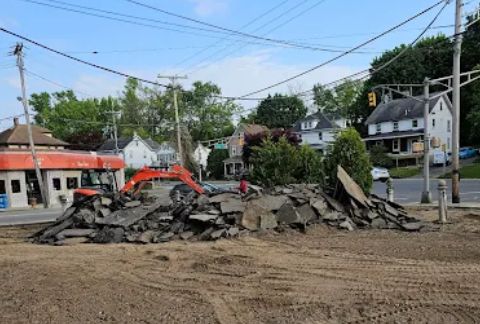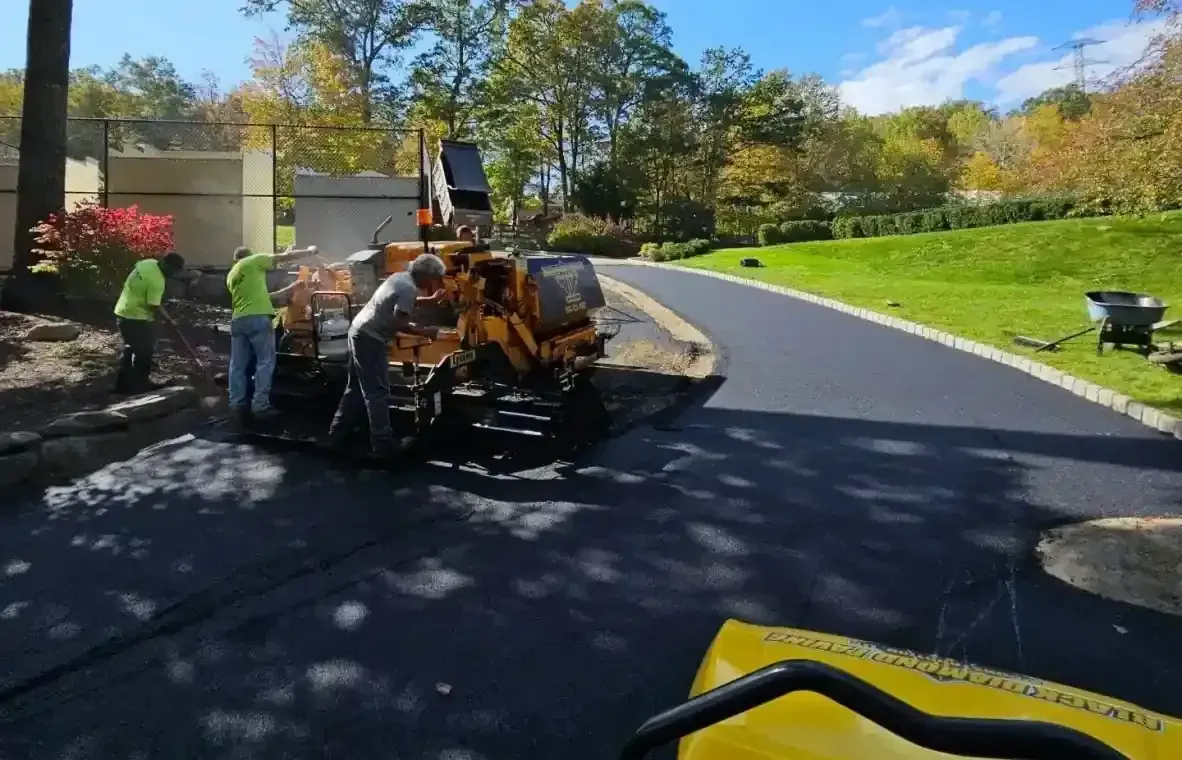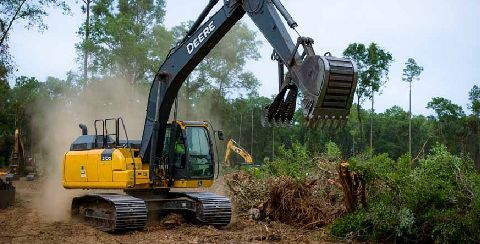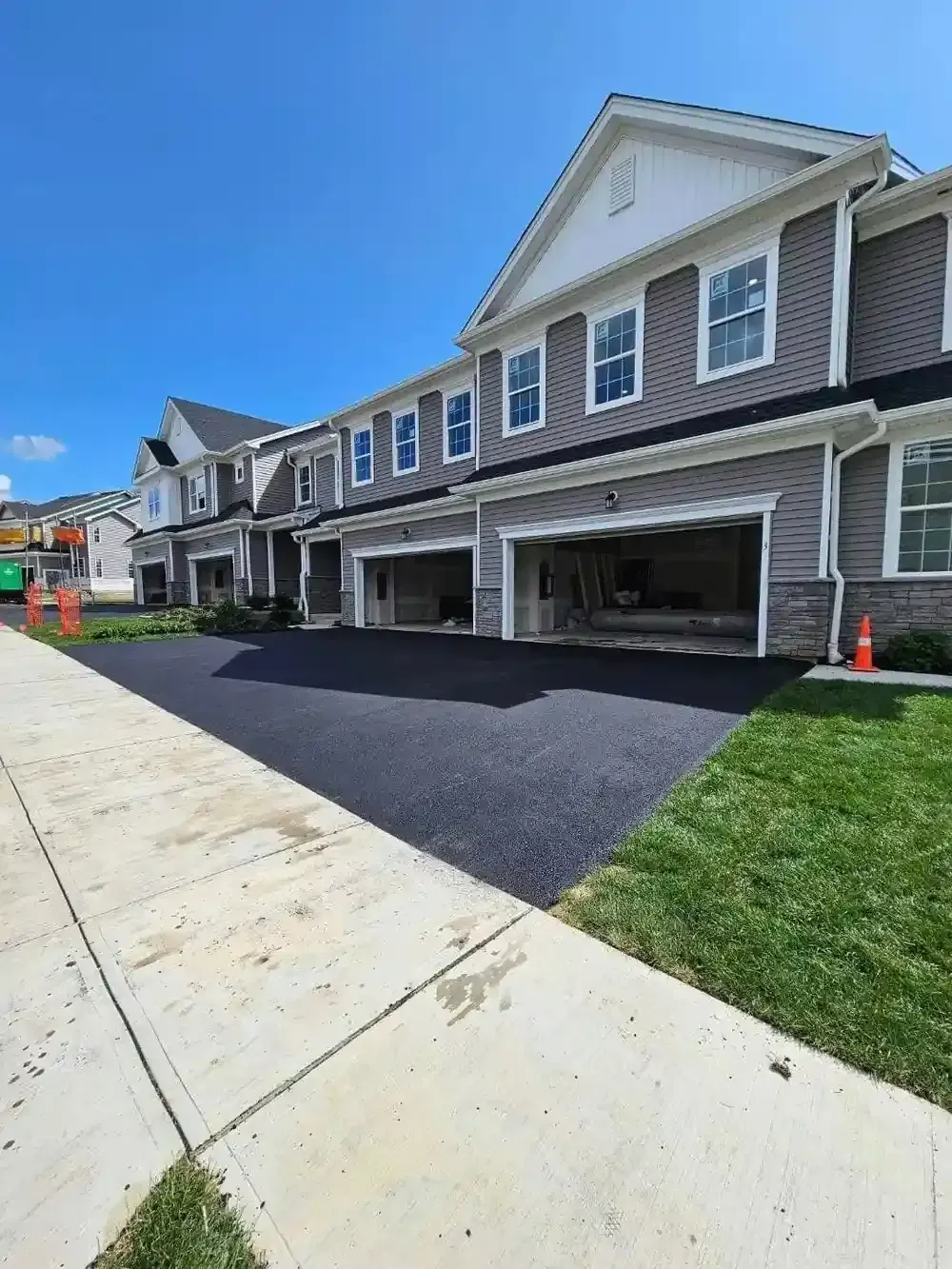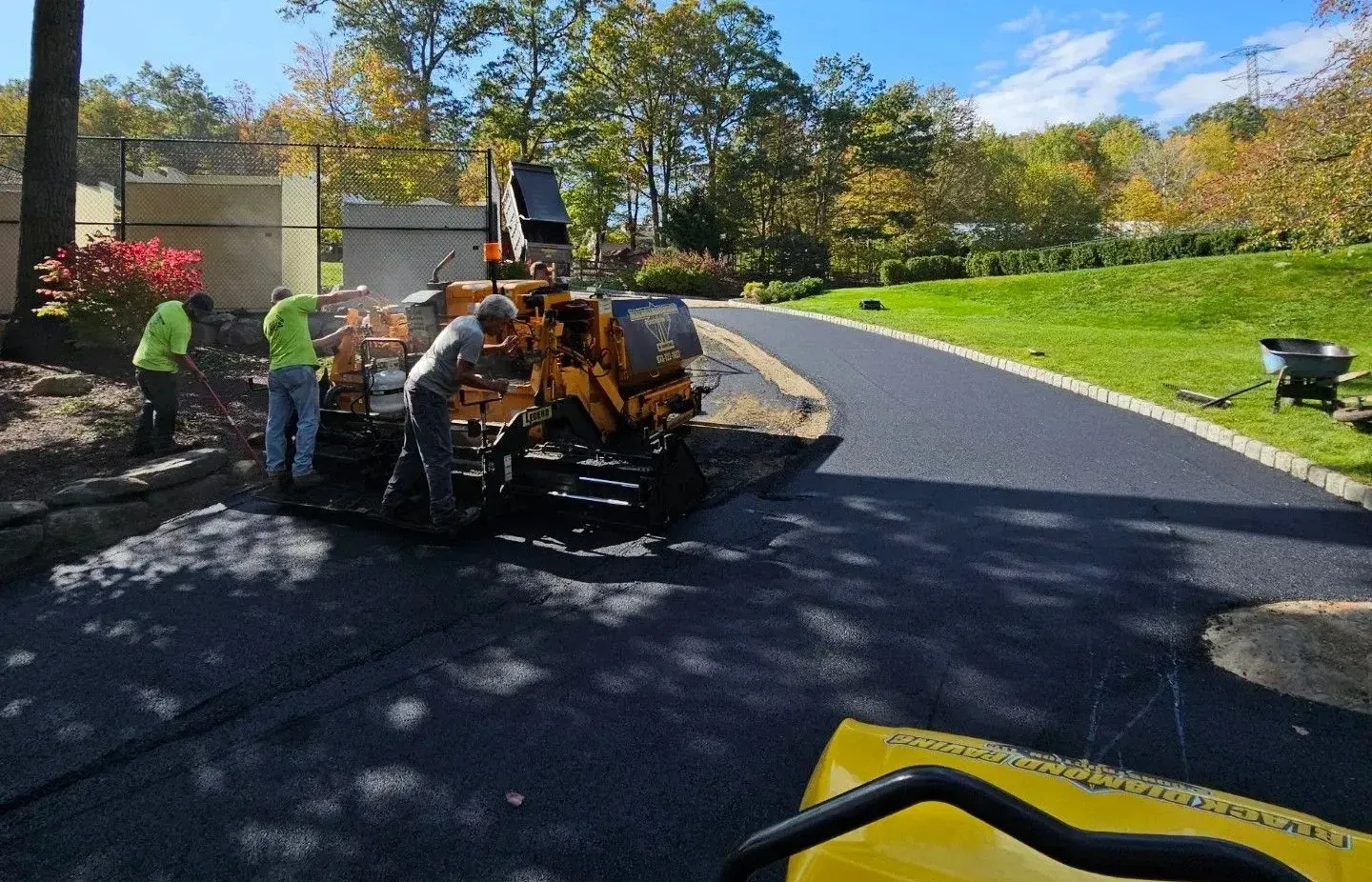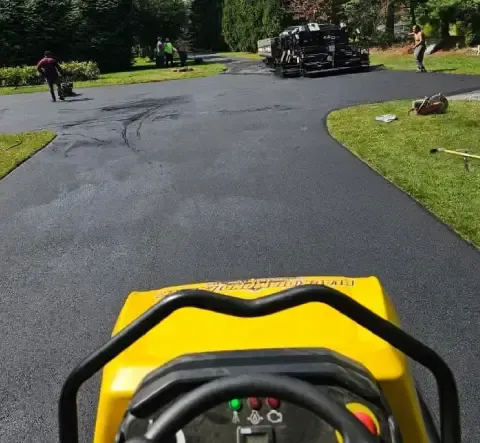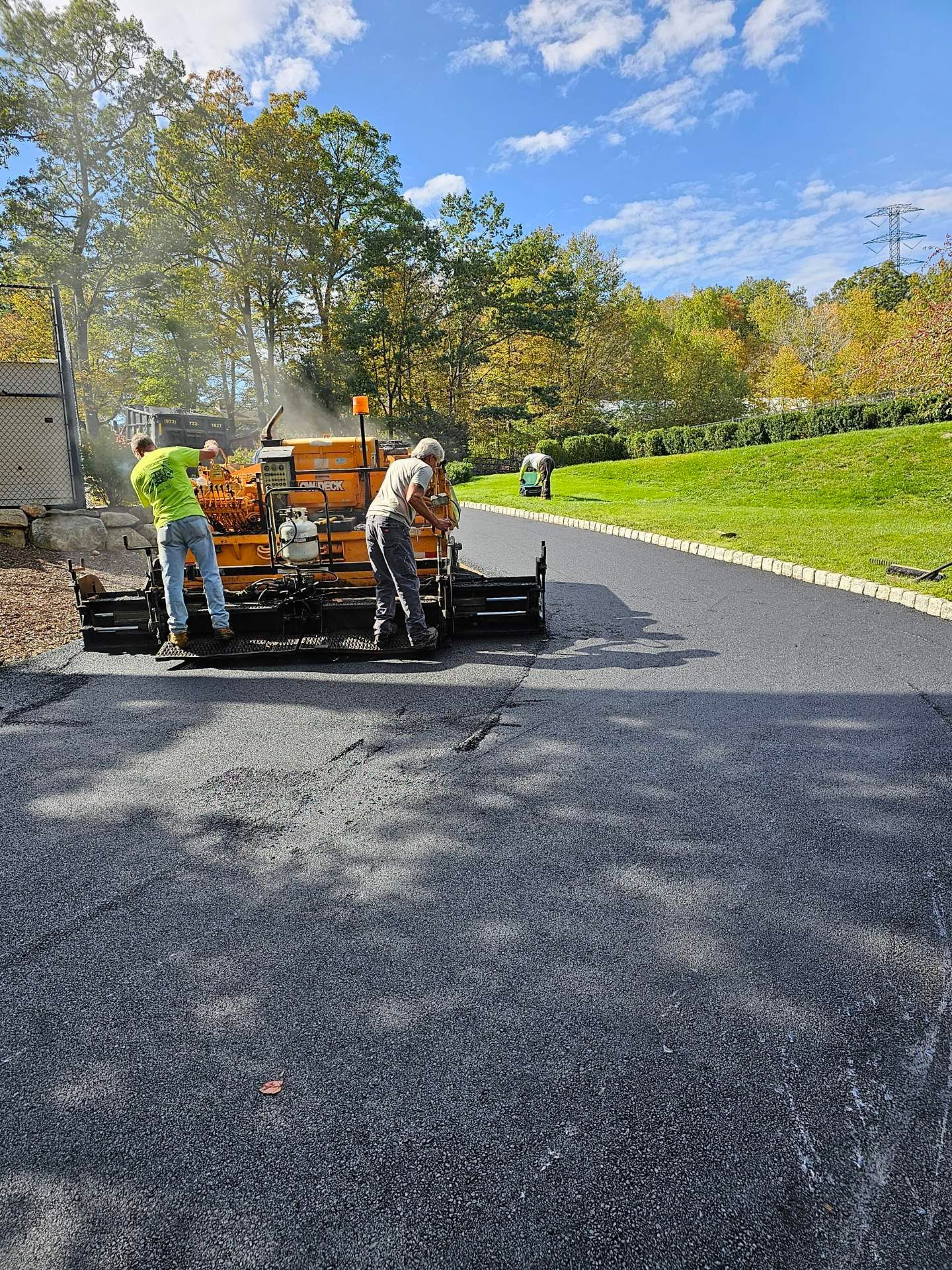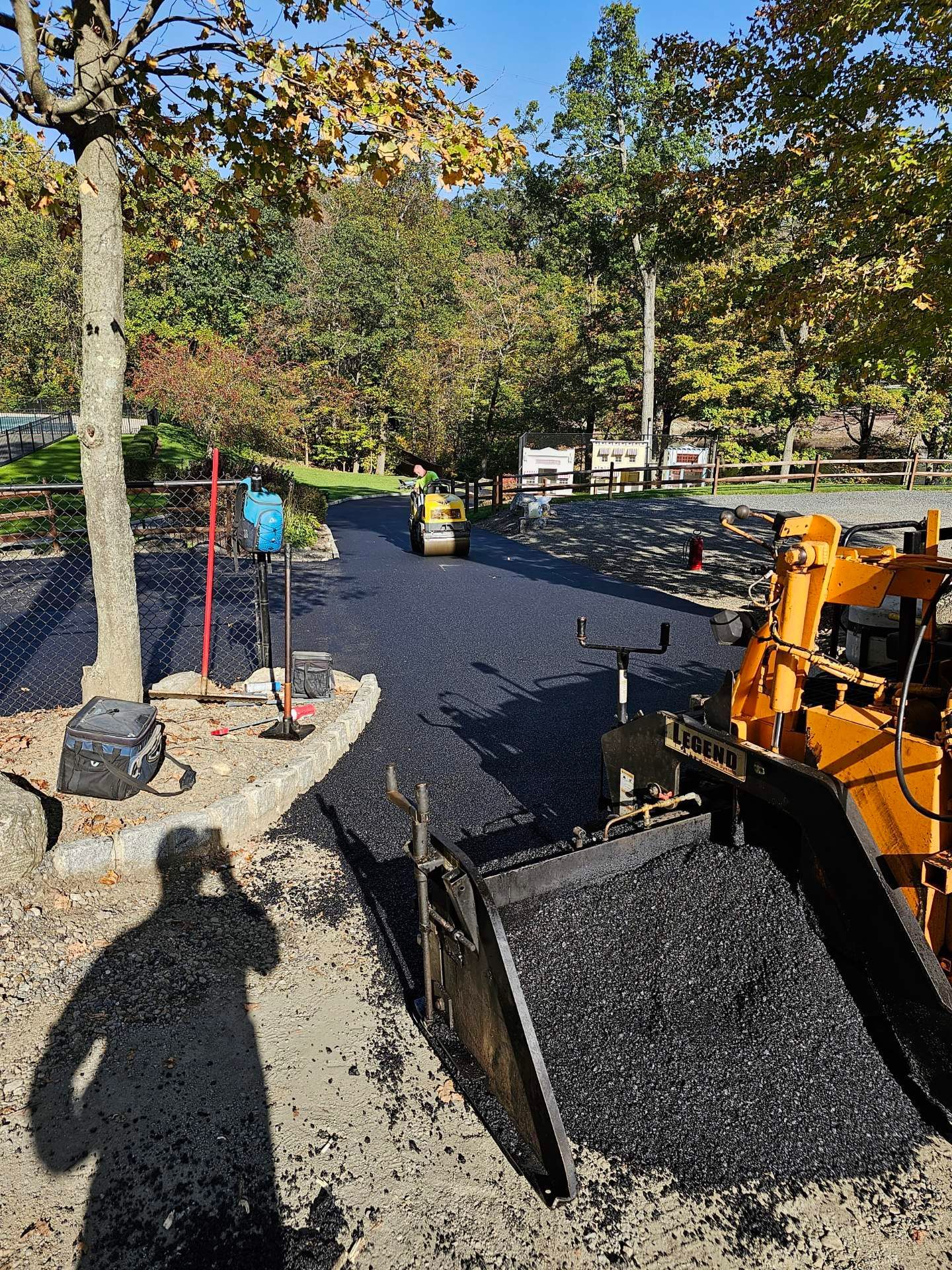A Comprehensive Guide to Residential Driveway Paving
So, you’re staring at that tired old driveway of yours and notice the cracks spreading like spiderwebs, maybe a pothole or two that you keep swerving around, and you’re thinking, yeah, it’s probably time. A new driveway isn’t just about curb appeal (though, let’s be honest, it does elevate the aesthetic allure of your property manifold). It’s about function, safety, and making sure your car doesn’t feel like it’s climbing mountains every morning.
But where do you even start? Driveway paving can feel like a big project - lots of decisions, lots of money, and a bunch of contractors all telling you something different. Don’t worry, this guide is here to break it down. We’ll talk materials (and why some hold up better than others), the costs you should expect, and what the actual process looks like when the crew rolls in.
Types of Driveway Paving Materials
This is where homeowners get confused. There are too many options, but let’s cut through the noise:
Asphalt
This is the classic choice, right? Blacktop driveways are everywhere. They look clean, they’re flexible enough to deal with shifting ground, and they don’t cost an arm and a leg. The tradeoff? Asphalt needs maintenance. Every few years, you’ve got to sealcoat it - think of it like a sunscreen for your driveway. Without it, sun, rain, and snow will damage your surface. But, if you don’t mind that upkeep, asphalt gives you a nice, smooth ride.
Concrete
The sturdy sibling. Concrete driveways are tougher, longer-lasting, and they don’t soften in summer heat the way asphalt sometimes does. You can even get fancy with colors or stamped patterns. The catch? Price. Concrete usually runs higher upfront, and if it cracks, repairs are trickier (and a little ugly, if we’re honest). Still, for homeowners who want something low-maintenance and neat, concrete’s a strong contender.
Gravel
The no-frills, country-road vibe. Gravel is cheap - like really cheap compared to asphalt or concrete. Plus, it drains well, which is great if your property gets a lot of rain. But it does come with tradeoffs: stones scatter, weeds sneak through, and you’ll have to replenish it now and then. It’s not for everyone, but if you’re after budget-friendly and rustic, gravel does the job.
Pavers or Brick
Here’s where the driveway starts turning into a design feature. Pavers, cobblestones, or brick driveways look incredible, no doubt about it. They can make your home look like it belongs in a magazine spread. The downside? Price, again. Labor costs are high because each piece has to be laid by hand. Also, weeds and shifting ground can mess with the pattern over time. But if you’ve got the budget and you want to stand out, pavers might be your showstopper.
It really boils down to what matters most to you - cost, look, or durability.
The Cost of Driveway Paving
Driveways aren’t cheap. And the material you choose is the biggest cost factor.
- Asphalt usually runs on the more affordable side, somewhere in the range of $4-$8 per square foot.
- Concrete climbs higher, $8-$15 per square foot.
- Gravel? Dirt cheap, around $1-$3 per square foot (though upkeep adds up eventually).
- Pavers or brick - you’re looking at premium territory, anywhere from $12 to $30 per square foot, depending on the design.
Now, these are ballpark numbers. Prices change with location, labor rates, prep work, and even the season.
The Driveway Paving Process
So, you’ve picked your material, you’ve braced yourself for the cost, and now you’re wondering - what does the whole thing look like from start to finish?
Planning & Permits
Depending on where you live, you might need a permit. Some towns have strict codes, others offer more leeway. Contractors usually help with this, but it’s good to ask up front.
Site Prep
They’ll clear out the old driveway if needed (demolition). Then comes grading - making sure the ground is level but with the right slope so water drains away from your house. Drainage is everything. Get this wrong, and you’ll regret it in the first big rainstorm.
Base Layer
Think of this as the foundation. Gravel or crushed stone is laid down and compacted. This step is the most important part. A weak base = cracks later on.
Paving/Pouring
For asphalt, contractors roll out that hot black mix and compact it smooth. For concrete, it’s poured, leveled, and finished. For pavers, it’s hours (sometimes days) of careful placement.
Curing/Setting
Asphalt can usually be driven on within a couple of days, though it keeps curing for weeks. Concrete? Give it at least a week before parking on it. Pavers and gravel are pretty much good to go once laid, though you’ll see settling over time.
Finishing Touches
Edges are cleaned up, and transitions to sidewalks or the street are smoothed. And you’ll be wise to schedule that first seal coat for asphalt a year down the line.
Don’t Skip Maintenance
Asphalt
Seal coat every 2-3 years. Fill cracks before they spread
Concrete
Watch for small cracks and seal them early. Avoid salt in the winter if you can.
Gravel
rake it, add more when it gets thin, and pull weeds when they sneak through.
Pavers
Sweep sands into the joints and keep an eye on shifting stones.
Regular maintenance is what keeps your investment lasting decades instead of falling apart in five years.
Wrapping Up
Driveway paving is mostly about the materials you choose. Asphalt is solid and affordable. Concrete is clean and long-lasting. Gravel is easy on the wallet but higher on hassle. Pavers look amazing if you can stomach the price.
The process itself isn’t rocket science, but choosing the right contractor, the right base prep, and the right follow-up maintenance? That’s where projects succeed or fail.
So next time you walk outside, look down at that cracked, tired stretch of pavement and think - do I want a quick fix, or do I want something that lasts? With the right material and a little upkeep, your new driveway could be something you’re proud to roll up on for decades.
Ready for a Driveway That Lasts?
Honestly, if you’re still going back and forth, asphalt just makes sense. It’s affordable, tough enough for Jersey winters, and it looks sharp without costing a fortune. At Black Diamond Asphalt Paving, our team’s been doing this for years, fixing up driveways big and small, making sure they last.
Call us today and we'll pave a smooth, durable, and brand-new driveway that withstands the weather and the test of time.
Recent Posts
